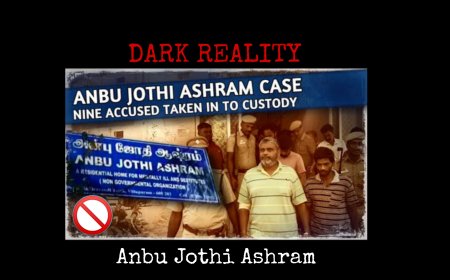10 Things to Expect from Your SEO Copywriter
From the perspective of a business owner, webmaster, or marketing manager, the change exhibited by the Internet is profoundly exciting, yet profoundly disturbing. The information (and misinformation and disinformation) it offers, the business benefits it promises, and the rules it is governed by change at such a rapid rate that it’s almost impossible to keep up.

From the perspective of a business owner, webmaster, or marketing manager, the change exhibited by the Internet is profoundly exciting, yet profoundly disturbing. The information (and misinformation and disinformation) it offers, the business benefits it promises, and the rules it is governed by change at such a rapid rate that it’s almost impossible to keep up.
These changes have led to a growing appreciation of the value of quality web copy. This appreciation has, in turn, led to an influx of opportunistic ‘copywriters’ promoting themselves as website copywriters or SEO copywriters. Don’t get me wrong, there are quite a few excellent SEO copywriters out there, and you should definitely shop around. The purpose of this article isn’t to scare you; it’s to help you find the SEO copywriter who’ll deliver honest service and excellent results.
So with that in mind, take a look at the following ten tips. These are the things you have a right to expect from anyone wearing a name badge that reads “website copywriter”, “SEO copywriter”, “internet copywriter”, or “web copywriter”… (See also 10 Things to Expect From Your Website Copywriter and How to Make the Most of Your Website Copywriter.)
1) An understanding of SEO
Obviously, your SEO copywriter must have a solid understanding of the essentials of Search Engine Optimization. They must know that ranking is essentially the result of a website’s relevance (i.e. keywords) and importance (i.e. inbound links). There are a whole lot of other factors involved, but if your SEO copywriter doesn’t understand these two basics, you should look elsewhere. If you’d like to ensure your SEO copywriter knows a little more than just the basics, take a look at SEO for CEOs, Writing SEO Copy, SEO Trade Secrets, Web Copy - How Much is Enough?, and How to Top Google by Writing Articles for some clues as to what you might like to ask in order to assess their knowledge.
2) Proven experience
The proof is, as they say, in the pudding. It’s not enough that your SEO copywriter can talk the talk; they must also be able to walk the walk. Ask to see some examples of websites for which they’ve obtained some good rankings. Note that it may be very difficult to find an SEO copywriter who has actually worked on both keywords and link generation, so if you find one who has, and they write well, snap ‘em up! They’ll have a very broad and useful working knowledge of search engines.
3) An understanding of how many keywords to use
You don’t want to fill every page up with every keyword you’re targeting. This simply dilutes your site’s relevance and reduces readability. Ask your SEO copywriter how many keywords they would recommend targeting on each page. Hopefully they’ll suggest no more than 3, preferably 2. By targeting 2 keyword phrases per page, you can use them a lot without impacting readability.
4) Clear agreement on who will provide keywords
Someone needs to perform a keyword analysis in order to figure out what words you should be trying to rank highly for. Your SEO copywriter should be able to do this for you, but it’s quite often more cost-effective if someone a little closer to the business does it. Either way, make sure your agreement with your SEO copywriter makes it very clear who is performing this task. Don’t assume the SEO copywriter is going to do it, because they may assume you’re going to do it, and then you’ll blow your budget.
5) Keywords or keyword phrases
Expect your SEO copywriter to offer some advice regarding how specific you should be with your keywords. In most industries, the competition for keywords is so fierce that you’ll be forced to target very specific keywords in order to rank – at least at the outset. For instance, if you’re in IT, you probably wouldn’t start out by targeting the keyword “IT”. The competition is immense (at the time of writing, there were approx 3,240,000,000 results for this search in Google.com) and the IT giants already dominate the search engines for this keyword. Instead, try using a more specific keyword phrase like “IT infrastructure consulting new york” (at the time of writing, there were only around 4,000,000 results for this search in Google.com). The other benefit to targeting more specific keyword phrases is that you’ll generate more relevant leads.
6) Agree on word count per page
Always make sure your SEO copywriter gives you an indication of the number of words they expect to write per web page. While it’s necessary to have a decent body of words on most of your web pages, you certainly shouldn’t have too many. What “too many” is all depends on your industry, the objective of the page, and the needs of your audience. It’s always a delicate balance, but it’s certainly possible to rank highly with only 100-200 words per page. So don’t be fooled into paying for copy you don’t need!
7) Density targets & measure
SEO of a web page is NOT guess-work. A good SEO copywriter will talk about density measures. This is a measure of the number of time the keyword phrase appears on the page. It’s expressed as a percentage of the total word count of the page. So if your page has 200 words, and your keyword phrase appears 10 times, its density is 5%. As a rule of thumb, your SEO copywriter should be aiming for a density of approximately 5% for your primary keyword phrase and 3-5% for your secondary keyword phrase. If your density measures are much higher than this, readability will be reduced, and you’ll risk being perceived as spam by the search engines. Make sure your SEO copywriter understands keyword density, is prepared to state the target density for each keyword phrase, and is also happy to be measured by that standard (should you decide to measure).
8) Where to place keywords
The question of keyword placement has been the subject of much debate amongst SEO copywriters. While it is still unclear how much impact placement has, there is a general consensus that it has SOME impact. Be sure that your copywriter is aware of this impact. Popular opinion has it that keywords are more effective if they appear in headings, bolded text, links, and generally toward the beginning of the page.
9) Some comment on structure & links
Websites are generally better indexed by search engines if their spiders can traverse the entire site using text links. This means your SEO copywriter should be linking each page to every other page using text links. If your site is complex, this may be impractical, so your SEO copywriter will need to create a hierarchical structure for your site. First, they should break your subject material down into categories. Then for each category, they should write a summary page. These summary pages should be accessible from higher level pages via text links. They should also be accessible from each other. Each summary page should link – using text links – to a number of pages discussing the finer details of the category. And each detail page in a particular category should link to every other detail page in that category (once again, using text links). This way the spiders are able to travel from the top of your hierarchy to the bottom, and from left to right across any level.
10) Don’t believe grand promises
SEO copywriters can play a significant role in increasing your search engine ranking. But they can’t do it overnight. By optimizing your site for your target keyword phrases, an SEO copywriter is simply declaring the relevance of your site. If you engage an SEO copywriter to write helpful articles containing a byline with a link back to your site, you can then submit these articles for publication on the Internet, and this will steadily increase your ranking. But if an SEO copywriter tells you they can dramatically increase your ranking in a matter of hours or days, be wary. NOTE: Your SEO copywriter should be able to submit your articles to various submit sites on the Internet. These sites are closely watched by hundreds of thousands of publishers of e-newsletters and article pages from all around the world. High quality articles are quickly snapped up and published prolifically. And each time your article is published, you’ve got another link back to your site, thus increasing the importance of your site (to the search engines). If you’d like to submit your own articles, your SEO copywriter should be able to sell you a list of 50 or more submit sites for as little as USD$99.
Conclusion
An SEO copywriter is a valuable addition to your marketing function. But you need to make sure you choose wisely. When you know what questions to ask, the battle is half won.
What's Your Reaction?




































































































